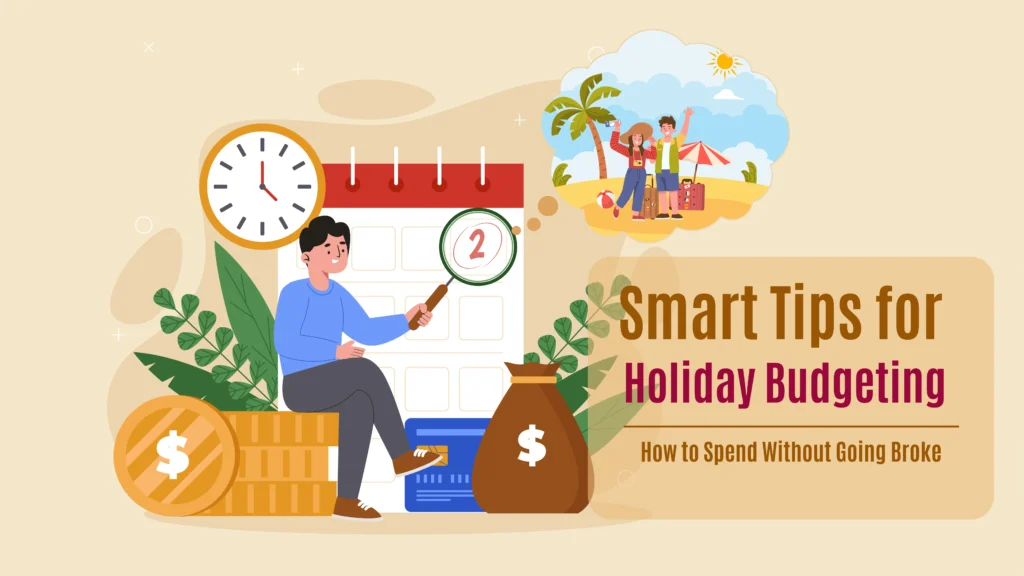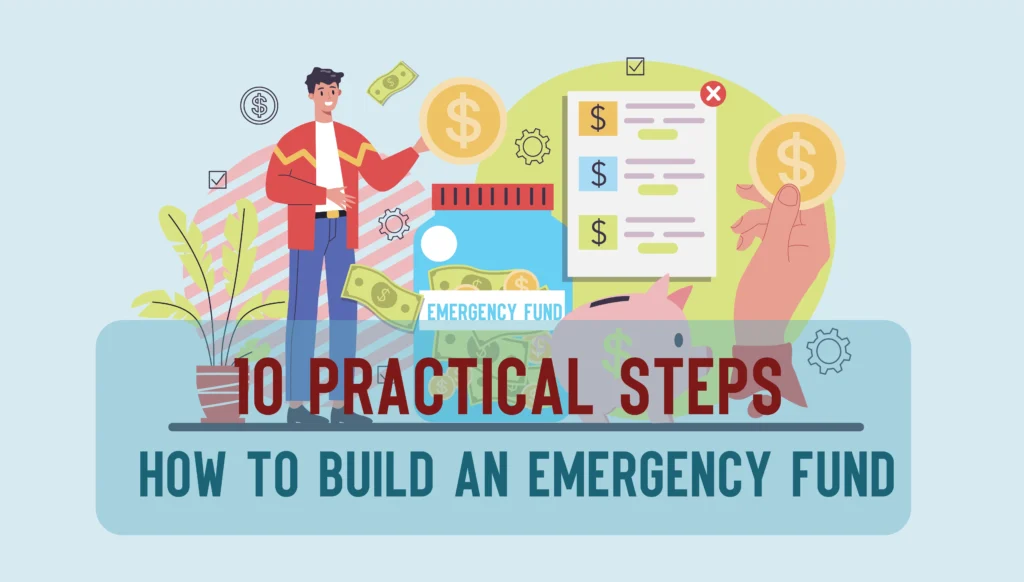How to Budget for Major Life Events: Weddings, Babies, and More
Life is full of exciting milestones—weddings, the birth of a child, purchasing your first home, or even starting a business. While these events are often joyful and life-changing, they can also be expensive and bring financial challenges. Without proper planning, the financial burden of big life events can lead to unnecessary stress, debt, and long-term financial strain.
That’s why budgeting is crucial. With a well-planned budget, you can prepare for these moments without jeopardizing your financial security. In this article, we’ll walk through how to budget for some of the most common life events, including weddings, having a baby, and buying a home. Whether you’re planning a large celebration or adjusting for the addition of a family member, this guide will help you navigate these milestones with confidence and financial clarity.

The Importance of Planning Ahead
Why Early Planning is Key
Budgeting for major life events requires early planning. The earlier you start, the more time you have to save and make thoughtful financial decisions. Early planning allows you to anticipate expenses, avoid debt, and reduce the likelihood of financial stress. For example, a wedding planned two years in advance gives you time to gradually save and explore cost-effective options for venues, catering, and entertainment.
The benefits of early planning are clear:
- Time to Save: Big life events are often expensive, but spreading out costs over time makes them more manageable.
- More Choices: With more time, you have flexibility to research options, compare prices, and find the best deals for your budget.
- Reduced Stress: Knowing you have a financial plan in place helps reduce stress, allowing you to enjoy the excitement of the event without worrying about how to pay for it.
Setting Financial Goals for Life Events
Start by setting clear financial goals for each life event. Estimate the total costs based on research and your preferences. Break down the total amount into categories, such as venue, catering, and photography for a wedding, or medical expenses and baby gear for a new child. Each goal should be specific, measurable, and realistic.
For example, if you’re planning a wedding, you might break down your expenses as follows:
- Venue & Catering: 40%
- Attire (dress, suit): 10%
- Photography & Videography: 10%
- Entertainment (DJ, band): 5%
- Miscellaneous (decorations, invitations): 10%
Time Frames for Planning
Different life events have different timelines. For weddings, the average planning period is 12-24 months. For having a baby, it’s ideal to begin budgeting as soon as possible, especially if you know you’re planning to start a family. Other events, like buying a home or moving, often require budgeting well in advance due to the large sums involved.
Budgeting for Wedding
Understanding Wedding Costs
Weddings can be as grand or as simple as you’d like, but the costs often add up quickly. Typical wedding expenses include:
- Venue: This is often the largest single cost of a wedding, especially if you choose a popular venue during peak wedding season.
- Catering: Food and drinks are typically priced per person, making this another major cost that increases with the size of your guest list.
- Attire: The wedding dress, groom’s suit, and any other attire for the bridal party.
- Photography/Videography: Capturing the memories of your big day can be expensive, but it’s often worth the investment.
- Entertainment: Hiring a band, DJ, or live performers for your reception.
- Miscellaneous: Invitations, flowers, decorations, transportation, and wedding favors are often overlooked but can add up quickly.
How to Create a Wedding Budget
To create a realistic wedding budget, start by discussing how much you and your partner can afford to spend without going into debt. If family members are contributing, include their input in the budget planning. Next, determine your priorities. Do you want to invest more in a beautiful venue, or is photography your top priority? Knowing what matters most helps guide your spending decisions.
Here’s a step-by-step approach to building a wedding budget:
- Total Budget: Calculate how much you can afford to spend on the wedding.
- Break Down Categories: Divide the total budget into categories like venue, catering, and attire. A common rule of thumb is to allocate about 40-50% of your budget to the venue and catering.
- Track Hidden Costs: Don’t forget about less obvious expenses like service fees, taxes, and tips for vendors.
Tips to Save on Wedding Expenses
- Off-Peak Weddings: Consider getting married during the off-season or on a weekday when venue prices are lower.
- DIY Elements: Save money by making your own decorations, invitations, or centerpieces.
- Limit Guest List: Reducing the number of guests can significantly lower your catering and venue costs.
- Consider a Longer Engagement: The more time you have to save, the less financial pressure you’ll feel.
Sample Wedding Budget Breakdown
- Venue & Catering: 40%
- Photography & Videography: 15%
- Attire: 10%
- Entertainment: 5%
- Miscellaneous: 10%
- Buffer for unexpected expenses: 10%
≫ Learn More: The Benefits of a Flexible Budget
Budgeting for a New Baby
Understanding the Costs of Having a Baby
Having a baby brings immeasurable joy, but it also introduces a range of new financial responsibilities. Some common expenses include:
- Medical Care: Prenatal care, delivery, and postnatal care can be expensive, especially if you don’t have comprehensive health insurance.
- Baby Gear: You’ll need a crib, stroller, car seat, clothing, diapers, and other essentials.
- Childcare: If both parents work, childcare is likely one of the biggest ongoing expenses. Options include daycare, a nanny, or family help.
- Ongoing Costs: Diapers, formula, baby food, and medical appointments will continue for the first few years of your child’s life.
Creating a Baby Budget
Begin by estimating the costs associated with prenatal care and delivery. If you have health insurance, check what’s covered and what you’ll need to pay out-of-pocket. Additionally, factor in any unpaid maternity or paternity leave, as this could reduce your household income for several months.
- Medical Expenses: Determine your insurance coverage and estimate out-of-pocket costs for delivery and hospital stays.
- Baby Gear: Make a list of necessary items, and consider setting up a baby registry to help offset the costs through gifts from friends and family.
- Monthly Expenses: Plan for ongoing monthly costs like diapers, baby food, and eventual childcare.
Tips to Save on Baby Expenses
- Buy Second-Hand: Many baby items, like clothes and furniture, can be purchased second-hand at a fraction of the cost.
- Use a Registry: Set up a registry to help friends and family buy what you need.
- Plan for Childcare Early: If you know you’ll need childcare, start researching options during pregnancy and consider applying early to avoid waitlists.
Sample Baby Budget Breakdown
- Medical Expenses: 20%
- Baby Gear: 30%
- Ongoing Monthly Costs: 30%
- Childcare: 10%
- Buffer for unexpected costs: 10%
Budgeting for Buying a Home
Understanding Home Buying Costs
Buying a home is likely one of the biggest financial decisions you’ll ever make. The key expenses include:
- Down Payment: Typically 20% of the home’s value to avoid Private Mortgage Insurance (PMI).
- Closing Costs: These can include appraisal fees, inspection fees, and legal fees, usually amounting to 2-5% of the home’s value.
- Home Maintenance: Once you own the home, you’ll need to budget for repairs, maintenance, and property taxes.
How to Create a Home Buying Budget
- Determine How Much You Can Afford: A general rule is to spend no more than 30% of your income on housing. Use online mortgage calculators to estimate your monthly payments based on different home prices and down payments.
- Save for a Down Payment: A 20% down payment is recommended to avoid PMI and reduce monthly payments.
- Buffer for Closing Costs and Repairs: In addition to the down payment, budget for closing costs and any immediate repairs or upgrades needed after you move in.
Tips for Saving for a Home
- Open a Dedicated Savings Account: Set up a separate savings account specifically for your down payment.
- Reduce Discretionary Spending: Cut back on eating out, entertainment, and vacations to save more for your home purchase.
- First-Time Homebuyer Programs: Explore programs that offer down payment assistance or lower interest rates.
Sample Home Buying Budget Breakdown
- Down Payment: 20%
- Closing Costs: 5%
- Immediate Repairs or Furnishing: 10%
- Ongoing Monthly Costs (mortgage, taxes, utilities): 30%
- Buffer for unexpected expenses: 5%
Budgeting for Other Major Life Events
Other Major Life Events to Plan For
- Education Costs: Whether saving for your child’s college education or returning to school yourself, education costs can be significant.
- Moving or Relocation: Moving can be costly, especially if you’re relocating to a new city or country. Budget for moving services, travel, and setup costs for your new home.
- Starting a Business: Budget for startup costs, legal fees, and living expenses while the business gets off the ground.
- Retirement: Start saving for retirement as early as possible to ensure a comfortable and secure future.
How to Budget for Each Event
For each life event, follow these steps:
- Estimate Costs: Research the costs associated with the event and create a comprehensive estimate.
- Save Incrementally: Open a dedicated savings account and set aside a portion of your income each month.
- Look for Additional Income: Consider side jobs or investments to help meet your savings goals faster.
Tips for Keeping Life Event Budgets on Track
- Prioritize One Event at a Time: Focus on the most immediate life event to avoid spreading your resources too thin.
- Adjust Timelines as Needed: If savings aren’t progressing as planned, consider extending the timeline for certain life events.
- Seek Financial Advice: For major events like starting a business or buying a home, consult with a financial advisor to help create a feasible plan.
Conclusion
Big life events, whether they’re joyous or challenging, often come with hefty price tags. Proper budgeting ensures that you’re prepared for these milestones without sacrificing your long-term financial security. By planning ahead, setting realistic financial goals, and making thoughtful choices, you can navigate weddings, babies, home-buying, and other life events with confidence and financial peace of mind.
Remember, no matter where you are in your financial journey, it’s never too late to start budgeting for the big moments ahead. Take control of your finances today so you can enjoy life’s major milestones without the stress of financial strain.












